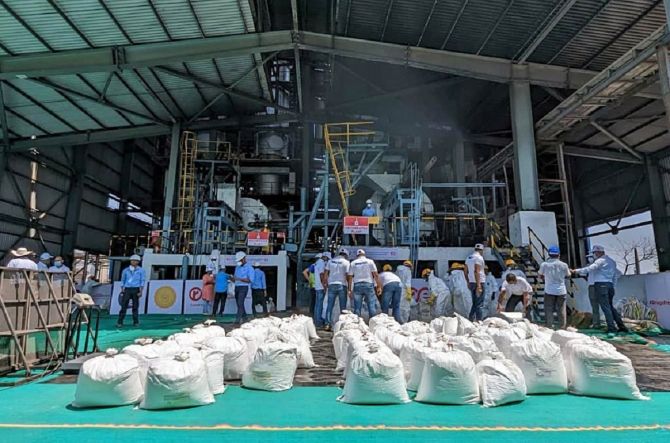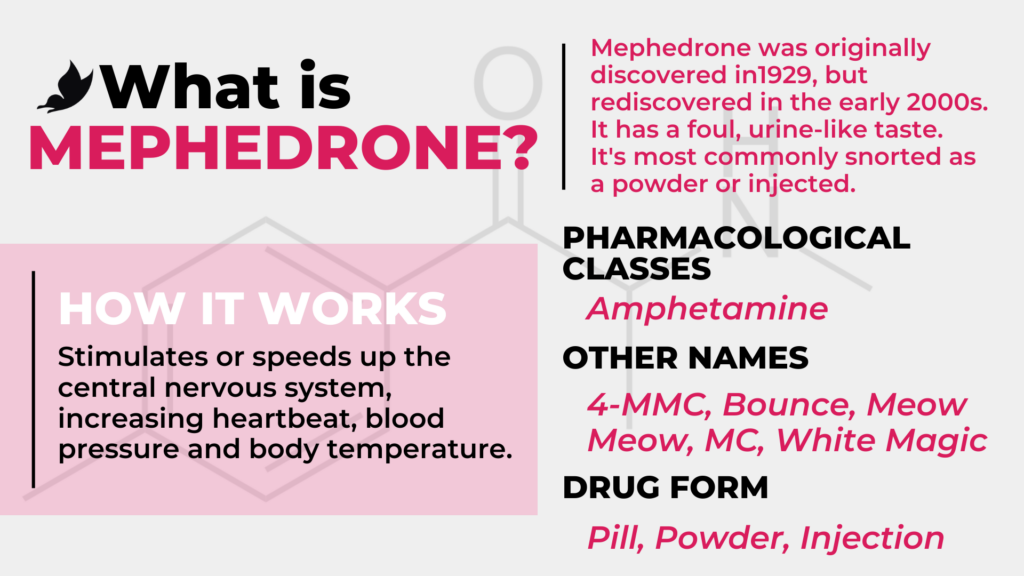Table of contents
Context
In recent developments, the synthetic stimulant Mephedrone, colloquially known as "meow meow" has garnered significant attention following a massive seizure by the police in Pune and New Delhi.
- The operation led to the confiscation of 1100kg of Mephedrone, valued at over Rs 2,000 crore, marking a significant crackdown on the distribution of this hazardous drug.



"Meow-Meow" was seized by police in Delhi and Pune.
The incident not only highlights the pervasive nature of drug abuse and trafficking but also underlines the imperative need for a robust legal and societal response, particularly in India.
What is Mephedrone?
Mephedrone, scientifically known as 4-methylmethcathinone (4-MMC), emerged as a "legal high" or plant food before its harmful effects on human health were fully understood.
- Its initial legal status contributed to its widespread use and popularity.
- However, as reports of adverse effects began to surface, authorities moved quickly to control its distribution and consumption.

- This synthetic stimulant is known for inducing effects such as increased alertness, euphoria, and enhanced sociability.
- Yet, these seemingly positive effects are overshadowed by the potential for anxiety, paranoia, nausea, and insomnia.
- The more sinister side of prolonged Mephedrone use includes cardiovascular issues, hallucinations, and aggressive behavior, which pose significant concerns regarding addiction and long-term mental health.
Symptoms of Mephedrone Use
Identifying Mephedrone use is crucial for timely intervention.
- Symptoms include dilated pupils, hyperactivity, excessive sweating, and an unusual sense of alertness.
- Behavioral changes, such as mood swings and social withdrawal, are also indicative of Mephedrone consumption.
We can't clear UPSC for you.
But with our personalised mentor support, you'll be ready to do it yourself.
The Global Spread and Legal Response
The rise of Mephedrone in the mid-2000s and its subsequent global spread underscore the challenges of curbing synthetic drug proliferation.
Despite its ban under India's Narcotic Drugs and Psychotropic Substance Act, 1985 (NDPS Act), the "meow meow" drug remains accessible on the illicit market, facilitated by its various street names like MD.
Why is this information important for UPSC Aspirants?
For UPSC aspirants, understanding the dynamics of drug abuse, trafficking, and the legal mechanisms in place to combat such challenges is essential.
The Mephedrone seizure serves as a case study in several key areas:
- Law Enforcement and Policy Making: The role of law enforcement agencies and the effectiveness of policies like the NDPS Act in curbing drug abuse.
- Public Health: The impact of synthetic drugs on public health and the importance of awareness and prevention strategies.
- International Relations: The global nature of drug trafficking networks and the necessity for international cooperation in addressing these challenges.
- Ethics and Governance: The ethical considerations in combating drug abuse and the governance mechanisms required to balance law enforcement with rehabilitation.

Conclusion
The seizure of Mephedrone worth Rs 2,000 crore is a stark reminder of the ongoing battle against drug abuse and trafficking.
A multifaceted approach is required to address societal issues, encompassing legal, health, international, and ethical dimensions. Understanding these aspects is crucial for those aspiring to serve in civil services, as they will likely encounter the complexities of drug policy and enforcement in their careers.
Previous Post